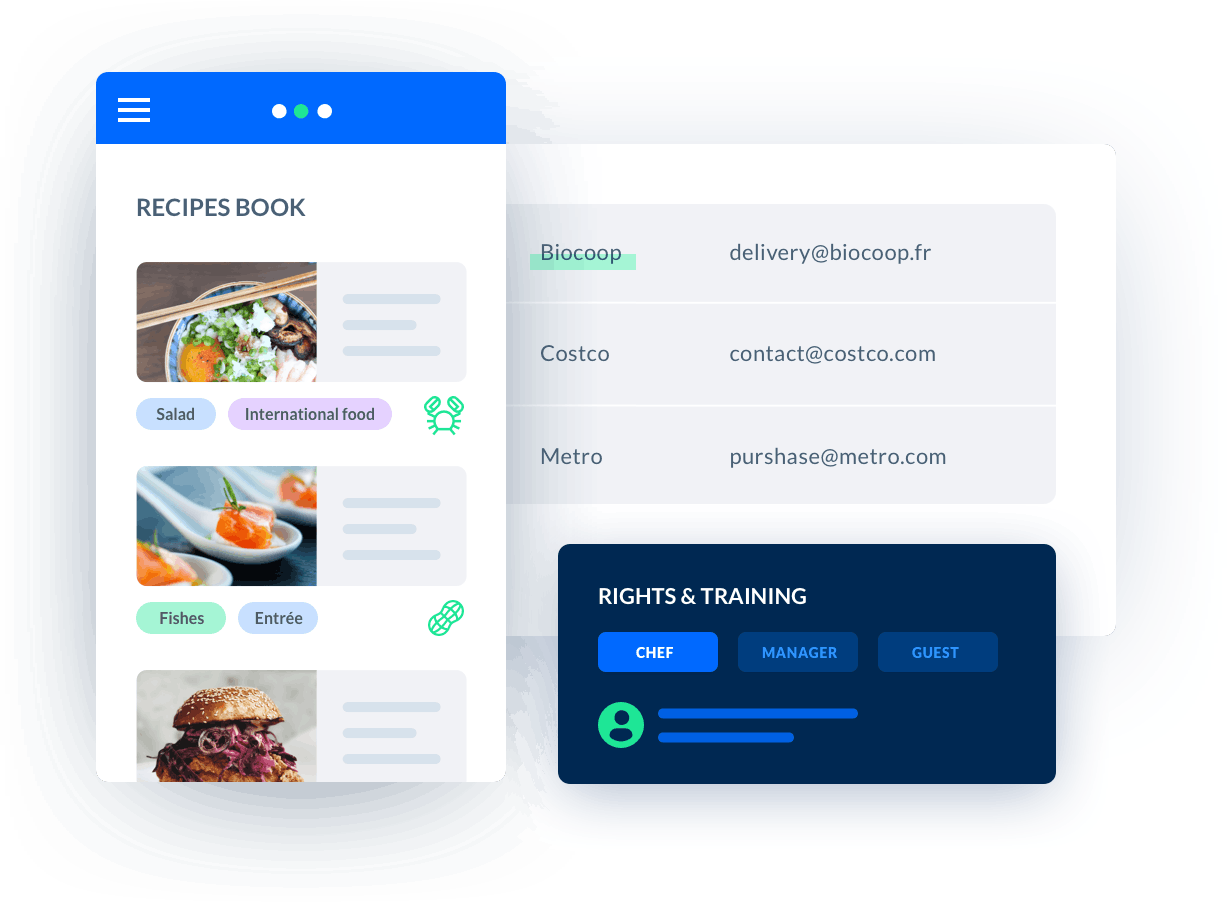food and beverage minimum calculator
The food and beverage minimum calculator is a valuable tool for professionals in the catering industry.It helps to determine the minimum amount that should be spent on food and beverages for events such as weddings, corporate functions, and parties.

Melba : Features related to menu engineering
Discover melba's features related to menu engineering

Better manage your recipe knowledge with data sheets: everything you need to know
How to better manage its knowledge recipe
The food and beverage minimum calculator is a valuable tool for professionals in the catering industry. It helps to determine the minimum amount that should be spent on food and beverages for events such as weddings, corporate functions, and parties. By using this calculator, you can ensure that you are meeting your clients' expectations while also staying within budget.
Why is the food and beverage minimum important?
The food and beverage minimum is an important aspect of event planning because it sets a baseline for the amount that should be spent on food and drinks. This minimum ensures that the event is properly catered and that guests are provided with a satisfactory dining experience.
Factors that influence the food and beverage minimum
Several factors can influence the food and beverage minimum for an event. These factors include:
- The number of guests attending the event
- The type of event (e.g., formal dinner, cocktail party)
- The duration of the event
- The time of day the event is taking place
- The location of the event
How to calculate the food and beverage minimum
Calculating the food and beverage minimum is a straightforward process. Here are the steps you can follow:
- Determine the number of guests attending the event.
- Decide on the type of event and the level of service you want to provide.
- Consider the duration of the event and the time of day it will take place.
- Research the average cost per person for food and beverages in your area.
- Multiply the number of guests by the average cost per person to get the total minimum amount.
Benefits of using a food and beverage minimum calculator
Using a food and beverage minimum calculator offers several benefits for catering professionals:
Accurate cost estimation
By using a calculator, you can accurately estimate the cost of food and beverages for your event. This helps you in budgeting and ensures that you are not overspending or underestimating the requirements.
Client satisfaction
Meeting the food and beverage minimum ensures that your clients' expectations are met. It guarantees that there is enough food and drinks available for all guests, leaving a positive impression on your clients.
Budget management
The food and beverage minimum calculator helps you manage your budget effectively. It allows you to allocate the right amount of funds for food and drinks, preventing overspending and maximizing profitability.
Best practices for setting the food and beverage minimum
While the food and beverage minimum can vary depending on the event and location, there are some best practices to consider:
Research local market rates
It is essential to research the average cost per person for food and beverages in your area. This will give you a benchmark to work with when setting the minimum amount.
Consider event specifics
Take into account the type of event, the level of service, and any dietary restrictions or special requests from your clients. These factors can influence the minimum amount required.
Be transparent with clients
Communicate the food and beverage minimum clearly to your clients. Explain how it is determined and why it is necessary. This transparency builds trust and ensures that both parties are on the same page.
Conclusion
The food and beverage minimum calculator is a valuable tool for professionals in the catering industry. It helps to accurately estimate the cost of food and beverages for events, ensuring client satisfaction and effective budget management. By considering factors such as the number of guests, event type, duration, and location, you can set an appropriate minimum amount. Transparency with clients is key to building trust and maintaining a successful catering business.






